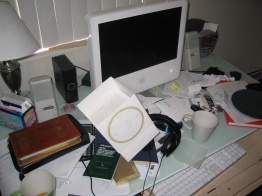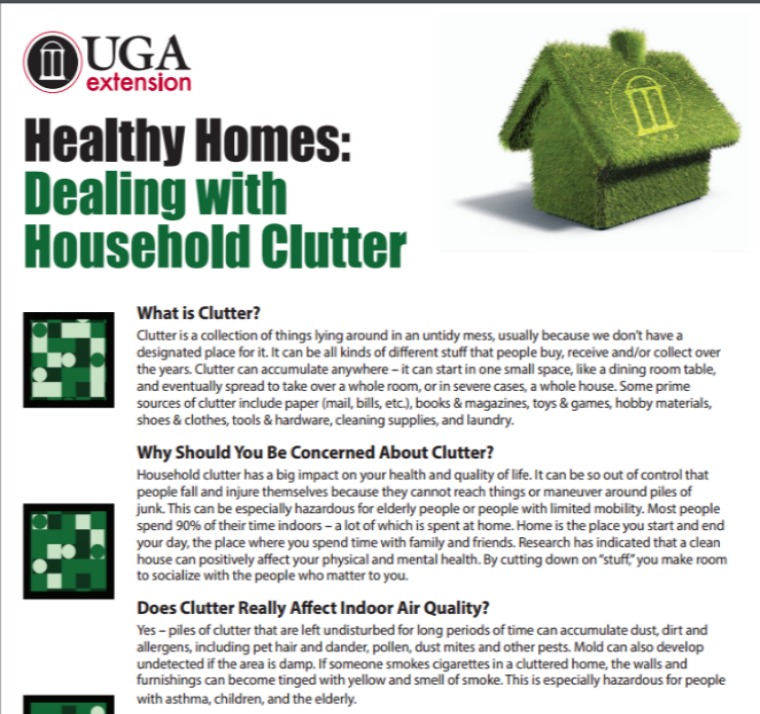At the end of a busy summer I find myself needing to “declutter” my brain. This year I decided a good place for me to start is to take control of my home. I am not a hoarder, but I have a lot of stuff and it feels like it has taken over every room of my house. Researchers report that if I can get control of it then my clean house can positively affect my physical and mental health. It makes sense. Your home is the place you start and end your day, and where you spend time with family and friends. When clutter gets out of control, you try to maneuver around the piles of stuff and end up falling and injuring yourself. You are embarrassed by the clutter so you stop inviting friends over to visit. All the stacks of paper, books, and empty boxes provide excellent hiding places for cockroaches, mice and rats. Then the dust starts accumulating and affecting your allergies and asthma. So, decluttering my home is a good thing.

Where do you start? There is so much information on how to declutter that you can easily become overwhelmed and do nothing. Start with something simple that you know you will do. What works best for me is to start with the junk drawer in the kitchen, the kitchen spice cabinet, the bathroom medicine cabinet, or a file drawer. Once I have decluttered at least one of those areas of my home I need to work on something that is visible, like my desk, a shelf, a table, or the kitchen counter.
The important thing is to not feel overwhelmed. Maybe you can only manage 5 or 10 minutes a day. That’s fine. For me, I created a simple “Clutter Health Plan.” I set aside 10 minutes three days a week to declutter my home, following these four guiding principles:
- SORT. I take five containers for sorting and label them – Keep, Recycle/Donate, Sell, Trash, and Uncertain. At the end of the week I take the items I am recycling or donating to a local organization. Things that cannot be recycled go into the trash. If I am really going to sell something then I list it for sale. The tricky one is the uncertain container. Those items may have to wait for another day when I can decide what to do with them.
- FIND A HOME. It helps to keep similar items together so you can find them later. For example, keep your office supplies in the same drawer so you aren’t looking all over the house for the tape or glue.
- COVER. Storing items in containers or drawers reduces the need to dust. If you label the boxes you can easily store them on a shelf or in a closet and still be able to find them later.
- DAILY. It helps a lot if you put things away after you use them. Everyone in your home should be doing this. For example, hanging your jacket up as you walk in the door saves time in the long-run.
UGA Extension is one of many resources that provides tips for Dealing with Household Clutter and keeping your home healthy at www.georgiahealthyhousing.org. Check it out and make time to create your personalized “Clutter Health Plan.” .

A place for everything, and everything in its place.~ Isabella Beeton
“Mrs. Beeton’s Book of Household Management” (1861)
Leave a Reply